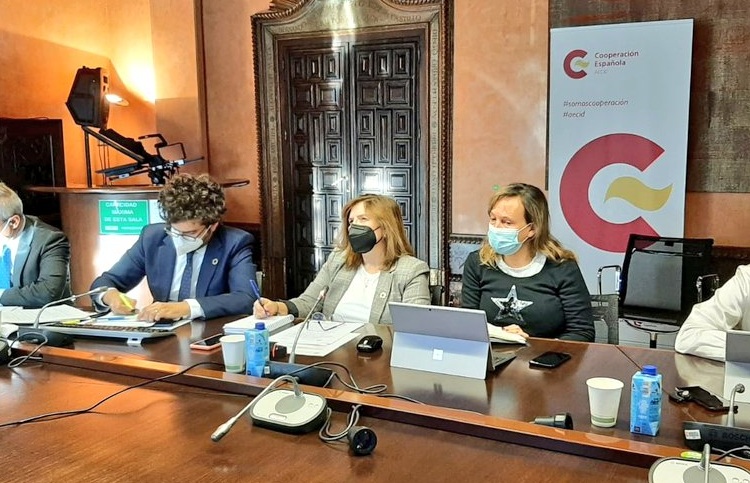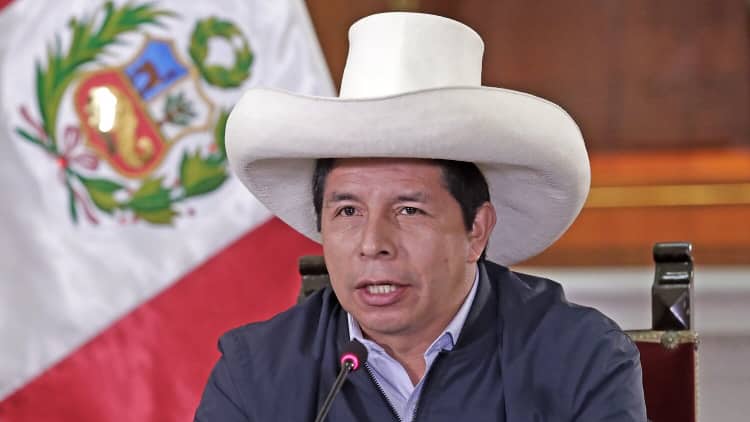The Diplomat
The Development Assistance Committee (DAC) of the Organization for Economic Cooperation and Development (OECD) has completed its “Peer Review” of the Spanish Cooperation, whose recommendations will be made public “soon”.
All DAC member countries are subject every five years to a review of their development cooperation system and policy to assess their performance, account for their commitments, recommend improvements and share lessons learned. The reviews use input from the authorities of the countries under review, as well as from civil society, resulting in a peer review.
In the case of Spain, the previous review was conducted in 2015. The 2020 review had to be postponed due to the COVID-19 pandemic and started in June 2021 through interviews with officials from the Ministry of Foreign Affairs European Union and Cooperation, other public agencies and civil society. The last review began with interviews with the then Minister, Arancha González Laya, and the then Secretary of State for International Cooperation, Ángeles Moreno Bau.
The DAC presented its final Peer Review report yesterday and the recommendations made by the review team “will be made public soon,” according to the Spanish Agency for International Development Cooperation (AECID) in a press release.
The DAC is made up of 29 countries, plus the EU, but in accordance with the usual procedure in a peer review, the review team included representatives from two specific DAC countries, Japan and the Czech Republic, as well as members of the organization’s secretariat. The review of Spanish Cooperation was carried out in accordance with the methodology agreed upon by all countries: preparation of the review, a visit to the country under review and to a partner country, preparation of the final report and its presentation to the DAC, with the assistance of the country’s highest authority on development cooperation, in this case, the Secretary of State for International Cooperation, Pilar Cancela.
At the final meeting, which took place yesterday virtually, the DAC committee provided the Spanish delegation with concrete elements and good practices for improving the cooperation system. The recommendations made to Spain address fundamental issues, such as the architecture of the cooperation system, the human resources model or the evolution of official development assistance (ODA). “Spain is committed to taking the report’s recommendations very seriously into account during the coming months, when the reform of our cooperation system will be undertaken,” said Cancela. “The final recommendations will be known in a few days and will be very useful for our new Cooperation Law,” she added.
In the previous 2015 review, the DAC warned that between 2010 and 2014, Spanish official development assistance had fallen by 68%, “after almost tripling between 2000 and 2009,” but noted that “the country’s gradual economic recovery should make it possible for Spain to begin to reverse the sharp decline in development assistance recorded since 2010 and direct a greater proportion of its aid budget to the countries most in need.” “Spain has pledged to increase the 2015 and 2016 aid budgets to begin to reverse this trend,” it added.
In 2015, after three years of economic recovery, the government allocated 0.13% of GDP to ODA, its lowest level since the 1980s. The General State Budget (PGE) for 2022 foresees an increase of 15.39 percent of ODA, representing an increase of 93.4 percent over 2015. In any case, according to DAC data from April 2021, Spain will need, at the current rate, at least 25 years if it wants to reach the 0.5% of Gross National Income for official development aid promised by the Government of Pedro Sánchez by the end of this legislature.
The Ministry of Foreign Affairs has been working for some time on the comprehensive reform of the Law on Cooperation for Sustainable Development, which will be accompanied by the new Master Plan 2022-2025 and is intended to be operational in 2023. Among the main objectives are the reform of the AECID, financial cooperation and the status of the development worker, and to reach 0.7% of GNI by 2030.






